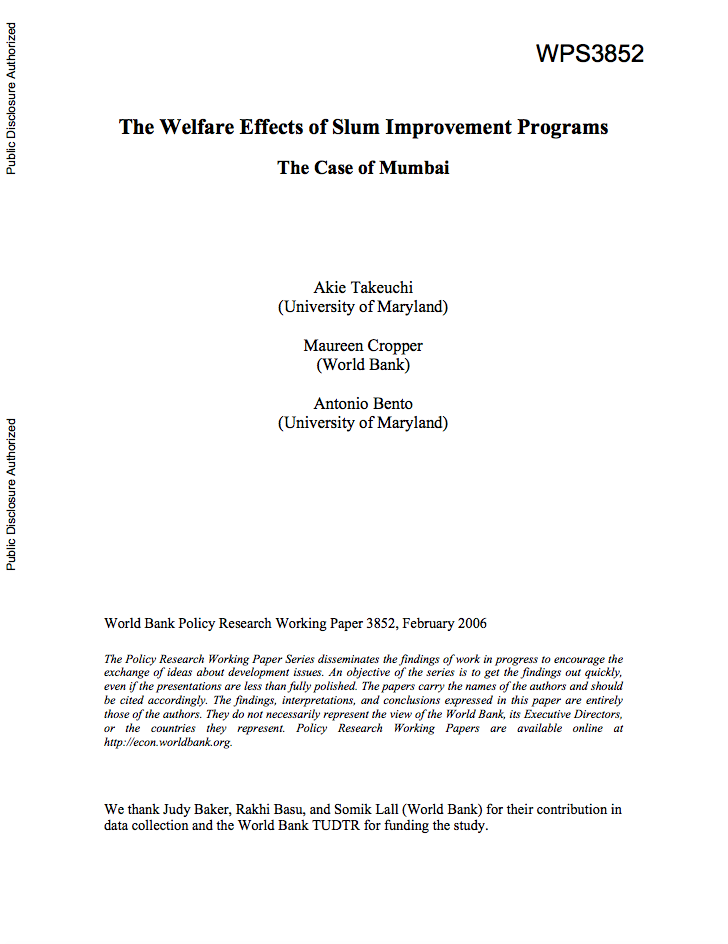The World Bank is a vital source of financial and technical assistance to developing countries around the world. We are not a bank in the ordinary sense but a unique partnership to reduce poverty and support development. The World Bank Group has two ambitious goals: End extreme poverty within a generation and boost shared prosperity.
- To end extreme poverty, the Bank's goal is to decrease the percentage of people living on less than $1.25 a day to no more than 3% by 2030.
- To promote shared prosperity, the goal is to promote income growth of the bottom 40% of the population in each country.
The World Bank Group comprises five institutions managed by their member countries.
The World Bank Group and Land: Working to protect the rights of existing land users and to help secure benefits for smallholder farmers
The World Bank (IBRD and IDA) interacts primarily with governments to increase agricultural productivity, strengthen land tenure policies and improve land governance. More than 90% of the World Bank’s agriculture portfolio focuses on the productivity and access to markets by small holder farmers. Ten percent of our projects focus on the governance of land tenure.
Similarly, investments by the International Finance Corporation (IFC), the World Bank Group’s private sector arm, including those in larger scale enterprises, overwhelmingly support smallholder farmers through improved access to finance, inputs and markets, and as direct suppliers. IFC invests in environmentally and socially sustainable private enterprises in all parts of the value chain (inputs such as irrigation and fertilizers, primary production, processing, transport and storage, traders, and risk management facilities including weather/crop insurance, warehouse financing, etc
For more information, visit the World Bank Group and land and food security (https://www.worldbank.org/en/topic/agriculture/brief/land-and-food-security1
Resources
Displaying 3616 - 3620 of 4906Mexico 2006-2012 : Creating the Foundations for Equitable Growth
The chapters, or "policy
notes," of this report, creating the foundations for
equitable growth in Mexico 2006-2012, are dedicated to
trying to solve parts of the puzzle as to why Mexico's
level of economic development has failed to approach the
level of its NAFTA trading partners, or the level of a
typical OECD member state. Each chapter of this new report
uses the 2000 policy notes as a reference. In this report,
Poverty and Environment : Understanding Linkages at the Household Level
This report seeks to present micro
evidence on how environmental changes affect poor
households. It focuses primarily on environmental resources
that are outside the private sphere, particularly commonly
held and managed resources such as forests, fisheries, and
wildlife. The objectives for this volume are three-fold. It
is first interested in using an empirical data-driven
approach to examine the dependence of the poor on natural
Cash Transfers, Conditions, School Enrollment, and Child Work : Evidence from a Randomized Experiment in Ecuador
The impact of cash transfer programs on the accumulation of human capital is a topic of great policy importance. An attendant question is whether program effects are larger when transfers are "conditioned" on certain behaviors, such as a requirement that households enroll their children in school. This paper uses a randomized study design to analyze the impact of the Bono de Desarrollo Humano (BDH), a cash transfer program, on enrollment and child work among poor children in Ecuador. There are two main results.
Investing Cash Transfers to Raise Long-Term Living Standards
The authors test whether poor households use cash transfers to invest in income generating activities that they otherwise would not have been able to do. Using data from a controlled randomized experiment, they find that transfers from the Oportunidades program to households in rural Mexico resulted in increased investment in micro-enterprise and agricultural activities. For each peso transferred, beneficiary households used 88 cents to purchase consumption goods and services, and invested the rest.
The Welfare Effects of Slum Improvement Programs : The Case of Mumbai
The authors compare the welfare effects of in situ slum upgrading programs with programs that provide slum dwellers with better housing in a new location. Evaluating the welfare effects of slum upgrading and resettlement programs requires estimating models of residential location choice, in which households trade off commuting costs against the cost and attributes of the housing they consume, including neighborhood attributes. The authors accomplish this using data for 5,000 households in Mumbai, a city in which 40 percent of the population live in slums.







